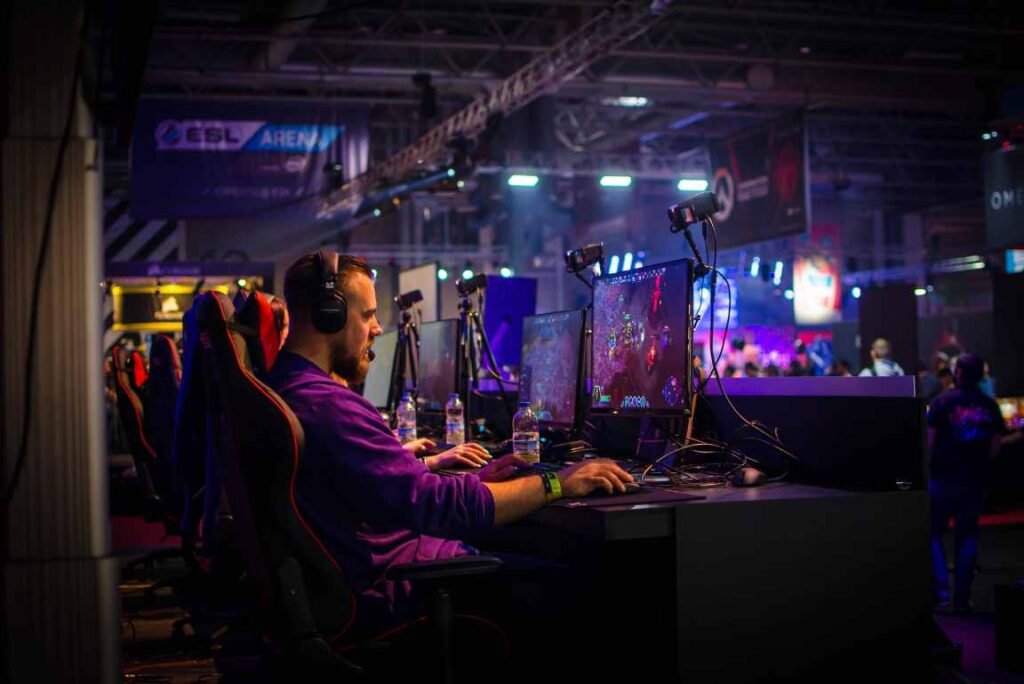Gaming isn’t just about high scores and flashy graphics anymore. It’s become a legitimate business playground where creative minds are building real companies and making serious money. The term “gamepreneurs” might sound trendy, but it represents something much deeper—a fundamental shift in how we think about work, entertainment, and entrepreneurship. These aren’t your typical suit-and-tie business owners; they’re passionate individuals who’ve figured out how to turn their love for games into thriving enterprises.
Small Studios Making Big Waves
Do you recall when you needed a massive team and millions of dollars to create a video game? Those days are over. New game development tools have arrived to equalize the playing field in a manner no one could have imagined. A case in point is Eric Barone, who spent four years creating Stardew Valley alone in his apartment. More than 20 million copies of the game have been sold worldwide. Or consider the husband-and-wife team behind Cuphead, who mortgaged their house to finance their dream game and then created one of the most gorgeous games ever made. These are not exceptions—they are the rule. Independent developers are proving that clever ideas and hard work occasionally trump fat company checkbooks.
When Playing Games Becomes a Paycheck
The whole concept of making money while playing has completely transformed how we view gaming. Earning games have opened up possibilities that seemed like fantasy just a few years ago. Players can now generate real income through skilled gameplay, trading virtual items, or participating in competitive tournaments. Some individuals are even earning more money playing video games than they did in traditional jobs. It’s not just about luck or spending countless hours grinding—it requires strategy, skill, and often a deep understanding of market dynamics. These platforms have created entire economies where virtual achievements translate into actual purchasing power.
Turning Personality into Profit
Streaming and content creation have given gamers an entirely new way to make a living. Personalities like Ninja and Pokimane didn’t just get lucky—they built brands around their gaming skills and entertainment value. They’ve created businesses that extend far beyond just playing games on camera. Merchandise lines, sponsorship deals, and even their own gaming products have become major revenue streams. What’s fascinating is how these creators have managed to maintain authentic connections with their audiences while building million-dollar enterprises. They’ve shown that being genuinely entertaining and skilled can be just as valuable as any traditional business model.
Professional Gaming as Big Business
Esports has exploded from basement tournaments to stadium-filling spectacles. Team owners and tournament organizers have built legitimate businesses around competitive gaming. Organizations like Cloud9 started as small gaming groups and now operate like professional sports franchises. They’ve got player contracts, training facilities, and brand partnerships with major corporations. The ecosystem around professional gaming includes everything from coaching services to specialized equipment manufacturers. What’s remarkable is how quickly this industry has matured, creating career paths that didn’t exist a decade ago.
Innovation Born from Gaming Needs
Gaming has always driven technological advancements, and entrepreneurs have taken notice. Virtual reality companies often develop their most compelling applications for gaming first. Artificial intelligence gets tested in game environments before moving to other industries. Blockchain technology found some of its most practical early applications in gaming economies. These tech entrepreneurs understand that gamers are often the most demanding and enthusiastic early adopters of new technology. They’re building companies that solve gaming problems first, then expanding those solutions to other markets.
Digital Marketplaces and Virtual Wealth
The idea that virtual items could have real-world value seemed absurd not too long ago. Now, entire businesses revolve around trading digital assets. Some rare in-game items sell for thousands of dollars. Virtual real estate in games like Decentraland has attracted serious investors. Entrepreneurs have built marketplaces, authentication services, and investment platforms around these digital economies. The rise of NFTs and blockchain gaming has only accelerated this trend, creating new opportunities for those who understand both gaming culture and financial markets.
Learning Through Play
Educational gaming represents one of the most socially valuable entrepreneurial opportunities in the gaming space. Companies are creating games that teach everything from basic math to complex medical procedures. These aren’t boring educational software disguised as games—they’re genuinely engaging experiences that happen to teach valuable skills. Medical students can practice surgeries in virtual environments. Language learners can immerse themselves in interactive conversations. Corporate training programs use gamification to make learning more effective and enjoyable. These entrepreneurs are proving that education and entertainment don’t have to be separate experiences.
Building Communities Around Games
Gaming’s social aspects have inspired entrepreneurs to create platforms that enhance player connections. Discord started as a simple voice chat application for gamers and has become a major social platform used by millions. Community-focused entrepreneurs understand that the relationships formed through gaming often matter more than the games themselves. They’re building tools for guild management, tournament organization, and social discovery. These platforms recognize that gaming is fundamentally about human connection and shared experiences.
The Netflix of Gaming
Subscription-based gaming services have transformed the way people access and consume games. Xbox Game Pass allows players to access hundreds of games for a monthly fee. Independent entrepreneurs have created specialized subscription services for game discovery, coaching, and exclusive content. These business models provide predictable revenue streams while offering ongoing value to customers. They’ve proven that gaming doesn’t always have to be about one-time purchases—ongoing relationships with customers can be more valuable for everyone involved.
Conclusion
The gaming industry’s entrepreneurial potential continues expanding as technology advances and player expectations evolve. These gamepreneurs represent something bigger than just successful businesses—they’re proof that passion-driven work can achieve remarkable commercial success. Their innovations influence technology development, social interaction, and economic models far beyond the gaming industry. As virtual experiences become more sophisticated and integrated with daily life, opportunities for gaming entrepreneurs will multiply. The future belongs to those who can blend entertainment, technology, and commerce in ways that genuinely enrich people’s lives while building sustainable businesses.










